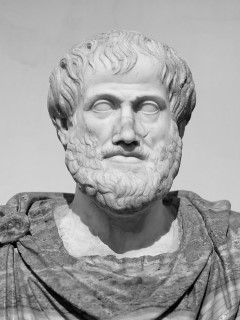
Publication details
Publisher: Birkhäuser
Place: Basel
Year: 2015
Pages: 241-265
Series: Studies in Universal Logic
ISBN (Hardback): 9783319101927
Full citation:
, "On the contrary", in: The road to universal logic I, Basel, Birkhäuser, 2015


On the contrary
disjunctive syllogism and pragmatic strengthening
pp. 241-265
in: Arnold Koslow, Arthur Buchsbaum (eds), The road to universal logic I, Basel, Birkhäuser, 2015Abstract
Bosanquet's dictum that "The essence of formal negation is to invest the contrary with the character of the contradictory" (Bosanquet in Logic, vol. 1. Clarendon, Oxford, 1888) describes the tendency for contradictory (apparent wide-scope) negation to be semantically or pragmatically strengthened to contrary readings whenever possible. Strengthening to a contrary instantiates the inference schema of disjunctive syllogism or modus tollendo ponens: from ϕ∨φ and ¬ϕ, infer φ. The role of disjunctive syllogism is instantiated in a variety of strengthening shifts in natural language where a disjunctive excluded-middle premise is pragmatically presupposed in relevant contexts. In a range of apparently quite diverse phenomena—negative strengthening in lexical and clausal contexts (e.g. "neg-raising"), apparent scope adjustments with negated plural definites and bare plurals, epistemic strengthening of weak implicature in both main and embedded contexts, and children's word learning strategies, among others—can be collected under the umbrella the general preference for strengthening to contrariety via disjunctive syllogism. This can be modelled using the Square of Opposition Aristotle describes in Chap. 46 of the Prior Analytics I, which I dub the Singular Square, to formalise his analysis of the interrelations among singular expressions (it's good/it isn't good/it's not-good/it isn't not-good).
Cited authors
Publication details
Publisher: Birkhäuser
Place: Basel
Year: 2015
Pages: 241-265
Series: Studies in Universal Logic
ISBN (Hardback): 9783319101927
Full citation:
, "On the contrary", in: The road to universal logic I, Basel, Birkhäuser, 2015


